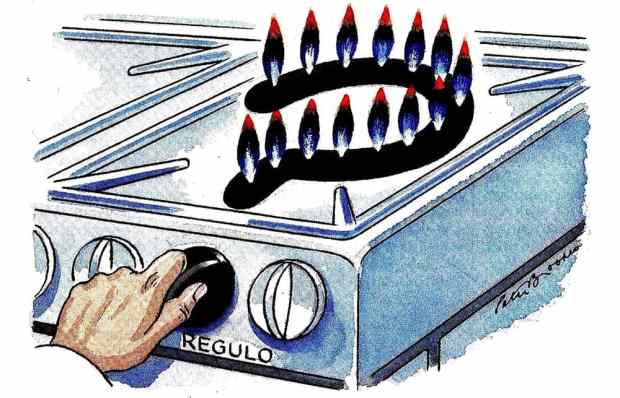On the advice of doctors, Queen Elizabeth II will not attend this year’s Festival of Remembrance at the Albert Hall. Her absence will be poignant. The Queen was 19 on VE Day in 1945. She served in uniform in the war, in the Auxiliary Territorial Service. She represents the very youngest generation who fought in the second world war. That generation will not be with us much longer.
The Queen does still hope to lay a wreath at the Cenotaph on Sunday. But we have to face up to the reality that one day there will be no one left who knew the world at war; there will be no reunions, no one to attend solemn remembrances, no one left to pass on their experiences to relatives. This is the purpose of Remembrance Sunday: to ensure that war does not recede into a distant historical memory.
To take a moment to contemplate the sacrifice of a great-grandfather you know only from a faded photograph is a very different business from remembering fathers, husbands, sons whose faces you can still see and whose voices you can still hear.
But we will lose a lot if we allow the world wars to pass into history. The second world war was not the ‘war to end all wars’ any more than the Great War was. The world will never be free of armed conflict.
Yet something very positive did come out of that period from 1939 to 1945, arguably something unprecedented in human history. Wealthy, powerful societies — nations which at one time would have rushed eagerly into armed combat — came together with the sincere and shared intention of establishing peace for future generations. At the time of the German and Japanese surrenders we still had no United Nations, no Universal Declaration of Human Rights, little in the way of infrastructure to impose international law. What did exist was a collective will on the part of people whose lives had been shattered by conflict never again to allow war to be used to advance national ambitions. The wartime generation didn’t just undertake acts of personal sacrifice to defeat Nazism; those who survived went on to build the modern world, the one in which we have global summits and expressions of co-operation rather than ultimatums and jackboots.
It is easy to be cynical about contemporary international relations — and this month’s COP26 won’t have done much to encourage faith in the ability of world leaders to achieve great things. Yet the post-war reconstruction of global politics has largely achieved what it set out to do. We might struggle to believe it watching the nightly news, but the chart of global conflict deaths compiled by the Uppsala Conflict Data Program shows a downwards trend since 1946 — in spite of long, damaging wars in Iraq, Syria, Afghanistan and elsewhere.
Between what used to be known as the ‘Great Powers’, all-out war has become all but unthinkable. We might have skirmishes involving fishing boats in the Channel, but even the most militant players in that dispute are not going to allow that to erupt into armed conflict. Vladimir Putin has committed more serious acts of aggression, yet still the prospect of war remains distant.
This relative post-war stability is thanks, in part, to nuclear weapons and the safeguard that is mutually assured destruction. But it is also thanks to the simple act of remembrance. When we lay wreaths, when we fall silent to remember the war dead, when we wear poppies, we are avowing not to make the mistake of forgetting. ‘Those who forget the past are condemned to repeat it,’ said the American philosopher George Santayana. Remembrance Day is about trying to ensure that doesn’t happen.
Remembrance Sunday has waxed and waned in the national consciousness in recent decades. A campaign was fought to hold a brief silence at 11 a.m. every 11 November — the date of the Armistice in 1918 — as well as on the closest Sunday to that date. Wars in Iraq and Afghanistan heightened our sense of obligation to remember. But with those wars over and the second world war generation passing, it would be easy to allow the ceremonies at the Cenotaph and all over the country slowly to recede into minor events, hangovers of the last age.
But Remembrance Sunday deserves to remain an important date in our national calendar: the closest the United Kingdom has to a national day. It should be a quiet moment when we remind ourselves that man is not born free: our freedom was given to us by those who fought and died to defend it. When that generation passes, it’s more important than ever that we never forget.
Got something to add? Join the discussion and comment below.
Get 10 issues for just $10
Subscribe to The Spectator Australia today for the next 10 magazine issues, plus full online access, for just $10.
You might disagree with half of it, but you’ll enjoy reading all of it. Try your first month for free, then just $2 a week for the remainder of your first year.














Comments
Don't miss out
Join the conversation with other Spectator Australia readers. Subscribe to leave a comment.
SUBSCRIBEAlready a subscriber? Log in